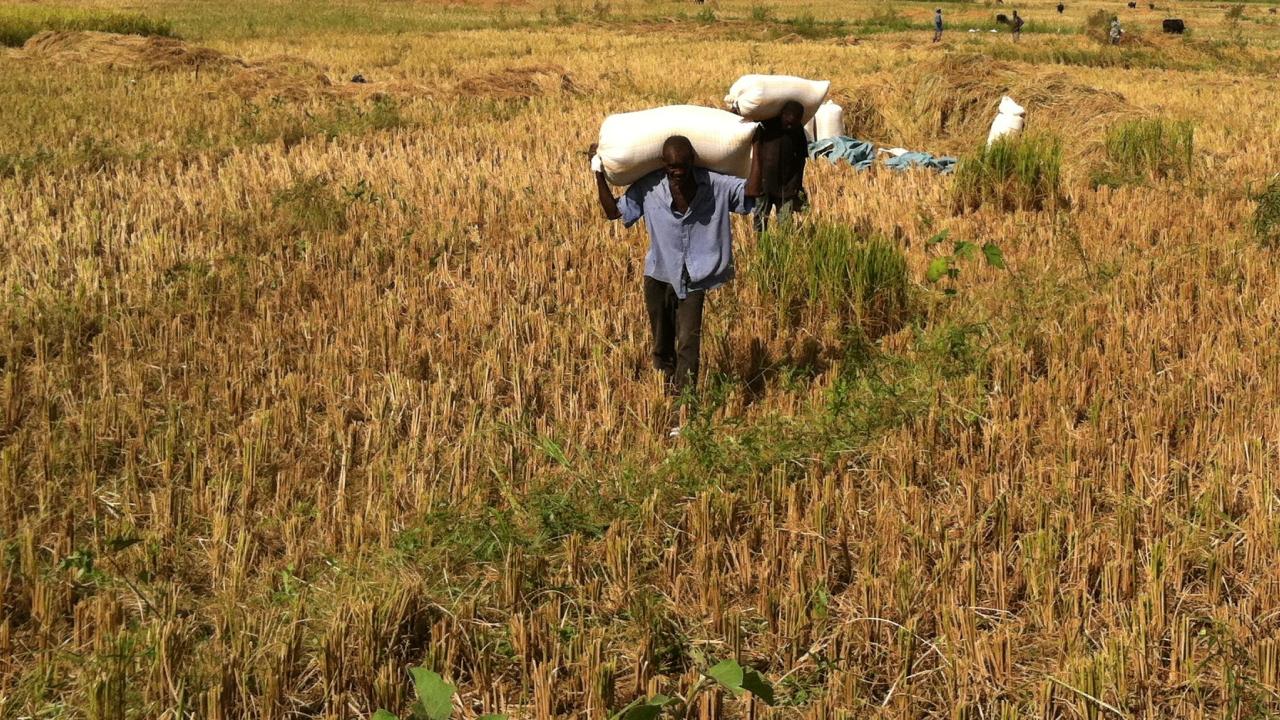
ALL-IN Seminar Discusses Mutual Weather Index-based Insurance in Nigeria
On November 23, the ALL-IN Research Network (ARN) held its latest member seminar, with 42 attendees. ALL-IN Principal Investigator Professor Peter Njiforti of Ahmadu Bello University in Zaria, Nigeria presented his ongoing research: “Enhancing Financial Inclusion through Mutual Weather Insurance: A Randomized Experiment.”
The project, Adapting to Climate Risk with Mutual Weather-Index Crop Insurance in Nigeria, is operated in the Sudano Sahel region of northern Nigeria. With climate change worsening the erratic rainfall patterns of an already short rainy season, the need is urgent to mitigate the risks of poor smallholder farmers. Access to financial services, typically low in remote areas, is further complicated by the region’s predominant Muslim faith, which forbids participation in traditional insurance.
In response, Professor Njiforti’s team developed a Shariah-compliant, Takaful insurance product to test in the region. The mutual weather index-based insurance offering leverages weather stations throughout the region; to ensure accuracy, eligible households are all located within a 50 km radius of a station. Further, farmers enter photos into the project app throughout the season, so that they may still receive a payout if the weather station failed to capture payout-triggering conditions they experienced.
The project is currently analyzing data from weather stations and photos to prepare the 2023 insurance payout.
In the seminar, Professor Njiforti shared findings from the baseline and midline surveys, including:
- Agreement that the climate is changing. Among farmer respondents, 65% agree that the region’s rainfall pattern has become more erratic.
- Very low levels of insurance knowledge. The baseline survey found that fewer than 1% of farmers were aware of crop insurance. A slightly higher but still low proportion, 3% had heard of Takaful insurance.
- Reports that weather affected the 2023 growing season. Of respondent farmers, 58% reported inadequate rainfall, 22% reported floods, and 78% reported a dry spell during crop development.
- Farmers see insurance as a viable solution. In the midline survey, 82% of farmers said they would consider insurance as option for climate risk mitigation, with 79% reporting willingness to pay at surveyed levels.
The presentation also included challenges operating the research project – from poor security conditions to low survey response rates.
Professor Njiforti is hopeful that Takaful insurance will prove an effective tool for farmers, and that eventually it can help 15 million farming households across the region build their resilience to climate change.
A recording of the seminar can be viewed here.
